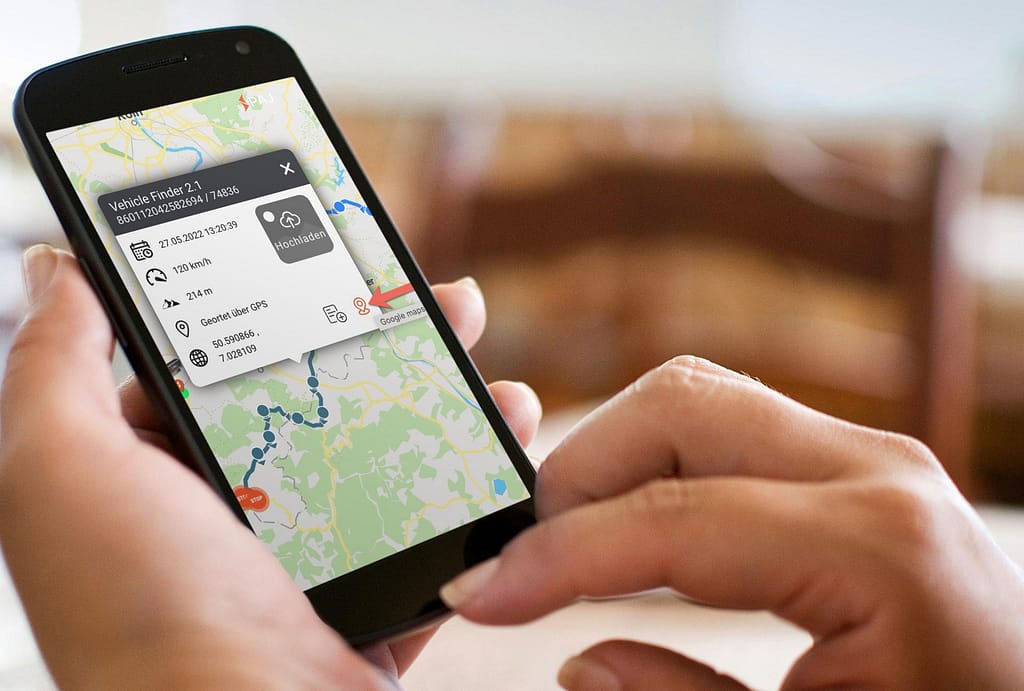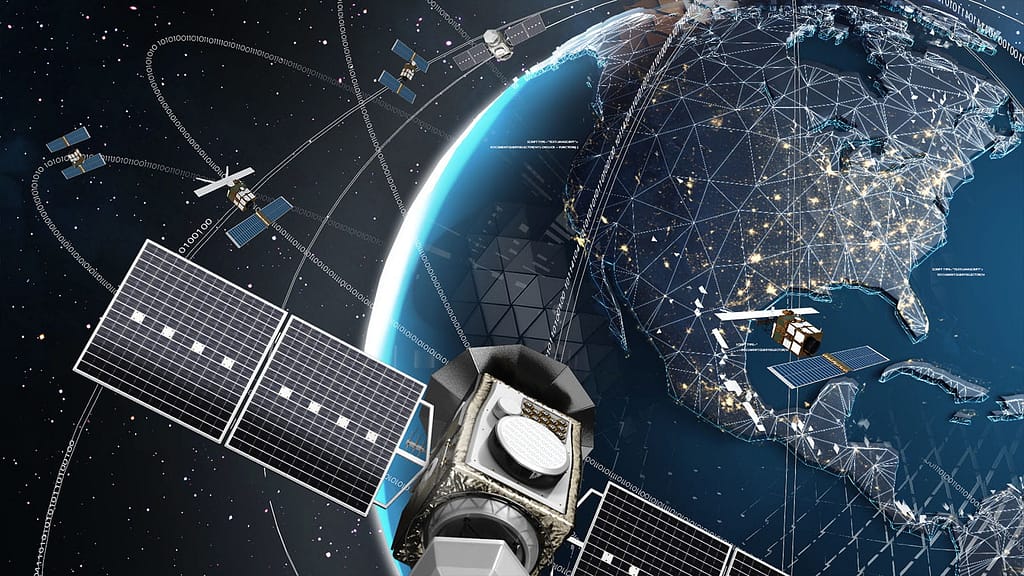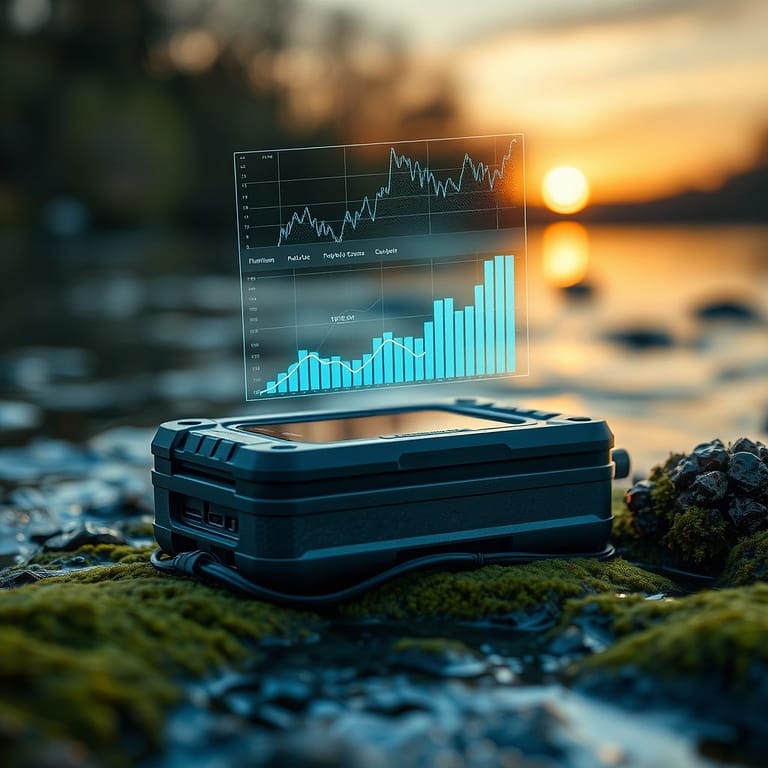In today’s interconnected world, technology has made its way into almost every aspect of our lives, both personally and professionally. Regarding the latter, one such innovation is the GPS tracker device – a compact and versatile gadget that has gained immense popularity in recent years due to its wide range of applications.
But what exactly is a GPS tracker device, and how does it work? In this article, we will delve into the world of GPS tracker devices, exploring their functions, benefits, and the various ways they can be used by your company.

What is a GPS tracker device?
A GPS (Global Positioning System) tracker device is a remarkable technological marvel that leverages the Global Positioning System to provide real-time, pinpoint-accurate location information for various objects, individuals, or vehicles.
At its core, the GPS tracker relies on a complex interplay of satellite technology, receivers, and advanced algorithms to deliver this functionality.
The satellite network comprises a carefully orchestrated arrangement of numerous satellites orbiting the planet, which are strategically positioned at various altitudes, ensuring that at least four satellites are visible from any point on Earth at any given time.
Each of these satellite is equipped with ultra-precise atomic clocks and constantly emits radio signals. These signals contain detailed information about the satellite’s position and the precise time at which the signal was transmitted. The GPS tracker device has a built-in GPS receiver designed to capture the signals from multiple satellites simultaneously.
To pinpoint its exact location, the GPS tracker relies on a process known as triangulation. Triangulation involves measuring the time it takes for signals to travel from each satellite to the GPS receiver – and since these signals travel at the speed of light, the receiver can calculate the distance to each satellite based on the time delay between signal transmission and reception.
By knowing the distances to at least four satellites (the minimum required for an accurate fix), the GPS tracker can determine its latitude, longitude, altitude, and even the precise time.
The GPS tracker device doesn’t work in isolation; instead, it communicates with a network of GPS satellites, constantly updating its position and transmitting this data to a designated receiver or system.

Applications
GPS tracker devices have a wide range of applications, both across various industries and for personal use.
Navigation
GPS tracker devices have become indispensable tools for turn-by-turn navigation across various domains.
In vehicles, GPS technology, integrated with navigation systems, enables drivers to receive real-time maps and directions. On smartphones, GPS-powered navigation apps like Google Maps and Waze help users find their way efficiently. In aviation, GPS trackers are essential for precise air navigation, guiding pilots through complex flight paths, and ensuring safe landings.
Fleet management
Many businesses, especially those with extensive vehicle fleets, rely on GPS tracker devices for efficient fleet management.
After all, these devices allow companies to monitor the whereabouts and activities of their vehicles and assets in real time. Fleet managers can optimize routes to reduce travel time and fuel consumption, enhancing overall operational efficiency.
Additionally, GPS trackers contribute to driver safety by providing insights into driver behavior and ensuring compliance with safety protocols.
Search and rescue
GPS trackers also play a pivotal role in search and rescue operations, particularly in locating missing persons, hikers, and adventurers in remote or hazardous environments.
They can transmit precise location data to rescue teams, enabling them to quickly and accurately pinpoint individuals in distress – and have saved countless lives by expediting rescue efforts and minimizing response times while at it.

Security
The application of GPS tracker devices in security extends to both asset protection and personal safety. Anti-theft systems incorporate GPS trackers to track and recover stolen vehicles or valuable goods.
GPS-enabled devices provide peace of mind to parents and caregivers, allowing them to track the whereabouts of loved ones, including children, elderly family members, and individuals with special needs. This added layer of security can be invaluable in emergencies or everyday life!
Environmental monitoring
GPS tracker devices find utility in environmental research and monitoring and have become very important in the field in recent years. Researchers and scientists utilize these devices to study various phenomena, such as wildlife migration patterns, where GPS tracking collars on animals provide valuable data.
GPS trackers are also used to monitor weather balloons during atmospheric studies and track ocean currents for climate research, for instance. Their precision and reliability are essential for gathering accurate environmental data anywhere on the planet.
Precision agriculture
GPS trackers have revolutionized agriculture by facilitating precision farming techniques and having a profound impact on sustainable agriculture practices.
Farmers employ these trackers to optimize planting, irrigation, and harvesting processes. By precisely mapping their fields and using GPS-guided equipment, they can reduce resource wastage, increase crop yields, and improve overall resource management.
Fitness and health
Wearable GPS trackers, like smartwatches and fitness bands, have gained popularity among individuals seeking to monitor their fitness and health. These devices record users’ activities and locations, allowing them to track workouts, calculate distances, and monitor progress.
They are especially beneficial for outdoor activities like running, hiking, and cycling, enabling users to explore new routes while staying connected and informed about their health and performance.
GPS tracker devices and asset tracking
Asset tracking is a crucial aspect of modern business operations, especially for industries that rely on valuable assets such as vehicles, equipment, and inventory. In this context, GPS tracker devices play a pivotal role in improving efficiency, security, and overall asset management.
GPS tracker devices provide real-time location data for assets, allowing businesses to know precisely where their assets are at any given moment. This information is invaluable for optimizing asset utilization, reducing downtime, and improving operational efficiency.
They can also be used to enable the creation of geo-fences, which are virtual boundaries around specific areas.
You see, when an asset equipped with a GPS tracker enters or exits a geo-fenced area, the system can trigger automated alerts. This feature is essential for security and compliance, as it helps prevent unauthorized use or access to assets and ensures that assets remain within designated areas.
For assets that are constantly on the move, such as delivery trucks or service vehicles, GPS trackers help optimize routes. By analyzing historical tracking data and real-time traffic information, businesses can identify the most efficient routes, reduce fuel consumption, and decrease delivery times.
GPS tracker devices can monitor the usage and condition of assets. This data can be used to schedule preventive maintenance tasks based on actual usage and wear and tear. By addressing maintenance issues proactively, businesses can extend the lifespan of their assets and minimize costly breakdowns.
Inventory management is another area that is greatly improved by the use of GPS tracker devices, where they can track assets and high-value goods during transit.
In warehousing and logistics, GPS-enabled asset tracking provides visibility into the movement of products, reducing the risk of loss or theft and improving supply chain efficiency.

Implementing GPS asset tracking in your company
At the end of the day, it’s undeniable that GPS tracker devices have revolutionized the way we track and monitor objects, people, and vehicles, therefore, also revolutionizing the entire asset-tracking field. As global technology continues to advance, GPS tracker devices are likely to become even more versatile and integral to our daily lives.
Whether it’s managing a fleet of vehicles, monitoring valuable equipment, or tracking inventory, businesses across various industries rely on GPS technology to streamline asset-tracking processes and protect their valuable assets.
And that is something we understand very well here at Datanet IoT Solutions, as we offer the best asset and environmental tracking solutions in the market. So feel free to get in contact with us anytime, so we can start helping you implement asset-tracking systems in your company today!






